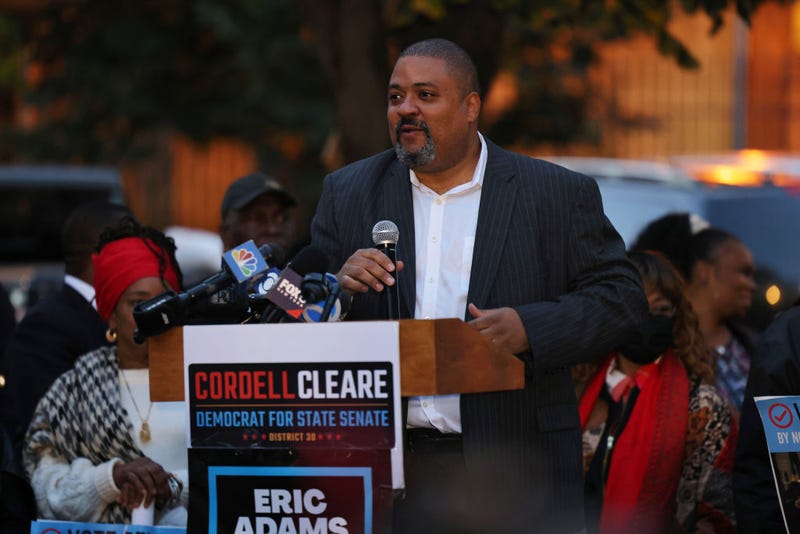
NEW YORK (WCBS 880) -- New Manhattan District Attorney Alvin Bragg released a long list of changes Tuesday in how his office will operate, including a number of charges that won't be prosecuted any longer.

Bragg's office said it would no longer prosecute marijuana misdemeanors, fare beating and resisting arrest, unless the latter is accompanied felony charges.
The office will also not go after misdemeanor trespassing, obstruction of governmental administration and prostitution, but the latter doesn't exclude "coercive practices regularly performed by those who traffic in the sex trade."
The memo goes on to say Bragg’s office won’t seek a “carceral sentence” except in homicide cases, other cases involving victim deaths, violent felonies causing serious injuries, domestic violence felonies, many sex offenses, public corruption and “major economic crimes.” The AG said the rules can come with exception based on a “holistic analysis of the facts”
The new DA said pretrial detention should be reserved for “very serious” cases, especially with the crisis on Rikers Island.
“The data show that the overwhelming majority of those released pretrial do not commit a violent crime while at liberty. Two studies show that even three days in jail can lead to a loss of housing, employment, and strain family connections and increase the likelihood failure to appear in court,” said Bragg.
Bragg’s office will not seek life without parole sentences.
He also claimed research indicates that after a certain length, long jail sentences don’t lead to community safety. A key point of his office is focusing on accountability over sentence length, as well as limiting youth prosecution in adult criminal courts, citing that “brain development continues until up to age 25” and “youth are physiologically subject to more impulsive behavior.”
Bragg said he his experiences have guided him to striving for “safety and fairness” in his career.
Other points of emphasis in the memo include that in drug cases, if there’s a “reasonable view” that the accused dealer is a “low-level agent of a seller,” they’ll typically be charged with misdemeanor possession.
In robbery cases, Bragg said incidents in commercial settings should be charged as petit larceny “if the force or threat of force consists of displaying a dangerous instrument or similar behavior but does not create a genuine risk of physical harm.”
The office will also look to invest more into “diversion” programs as an incarceration alternative.
"Diversion is defined as the opportunity to complete a short but meaningful programming mandate after arrest through a community-based provider, based on the needs of the person arrested," said Bragg.
Bragg talked of his upbringing in Harlem, saying he had guns pointed at him three times by police officers and a homicide victim “on my doorstep.” He also spoke of watching someone close to him return from incarceration.
“Late last year, during a stretch of multiple shootings within three blocks of my home, I had perhaps the most sobering experience of my life: seeing ––through the eyes of my children–– the aftermath of a shooting directly in front of our home, as we walked together past yellow crime scene tape, seemingly countless shell casings, and a gun, just to get home,” Bragg said.
The moves caused immediate outcry from groups like the New York City Police Benevolent Association, with President Patrick Lynch saying they had "serious concerns" about Bragg's memo.
"Police officers don’t want to be sent out to enforce laws that the district attorneys won’t prosecute," said Lynch. "And there are already too many people who believe that they can commit crimes, resist arrest, interfere with police officers and face zero consequences."
Lynch said he looks forward to discussing the issues and concerns of the PBA with Bragg in the future.
Bragg said new policies on guns, sex crimes and hate crimes will be announced in the coming weeks.



